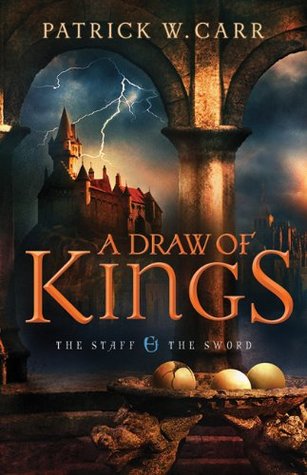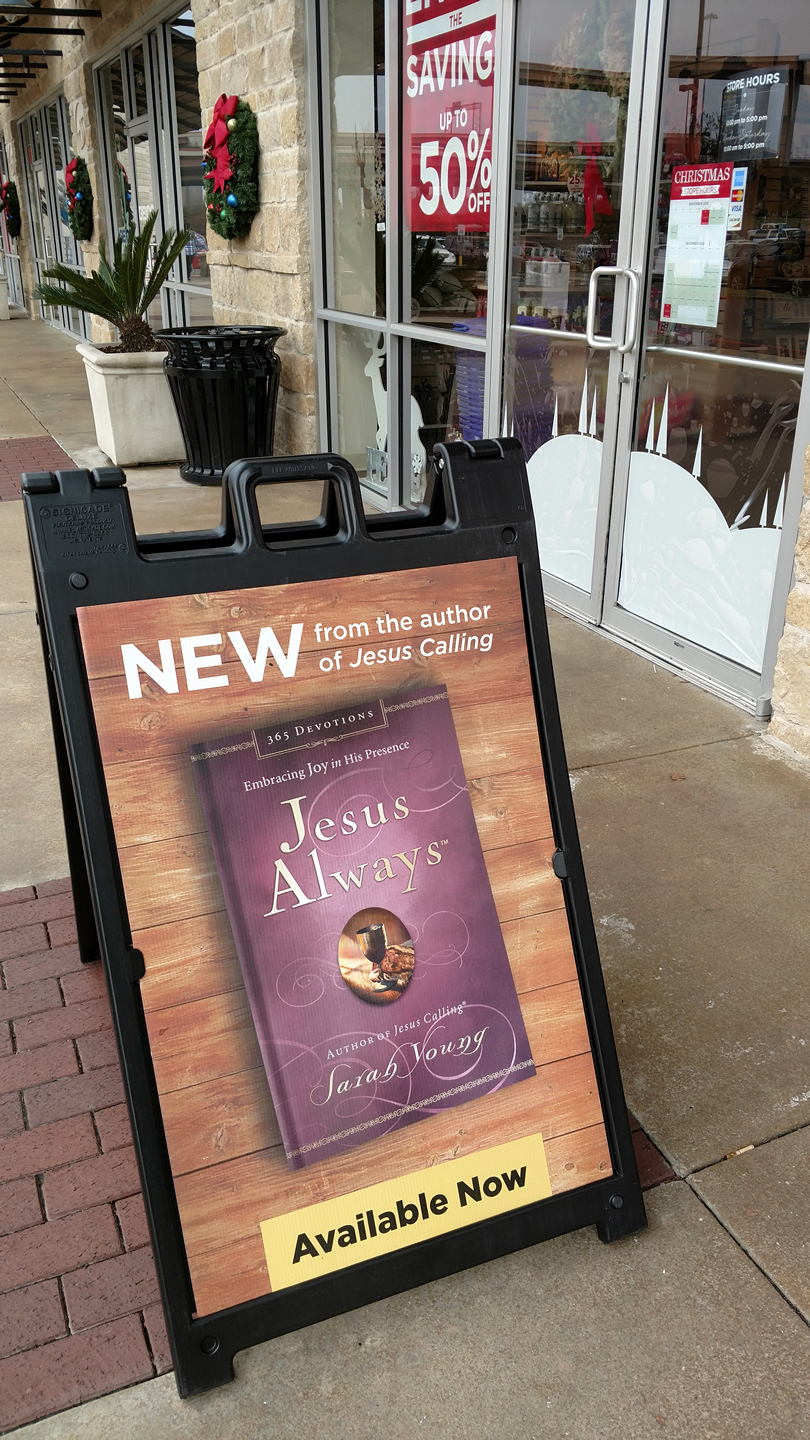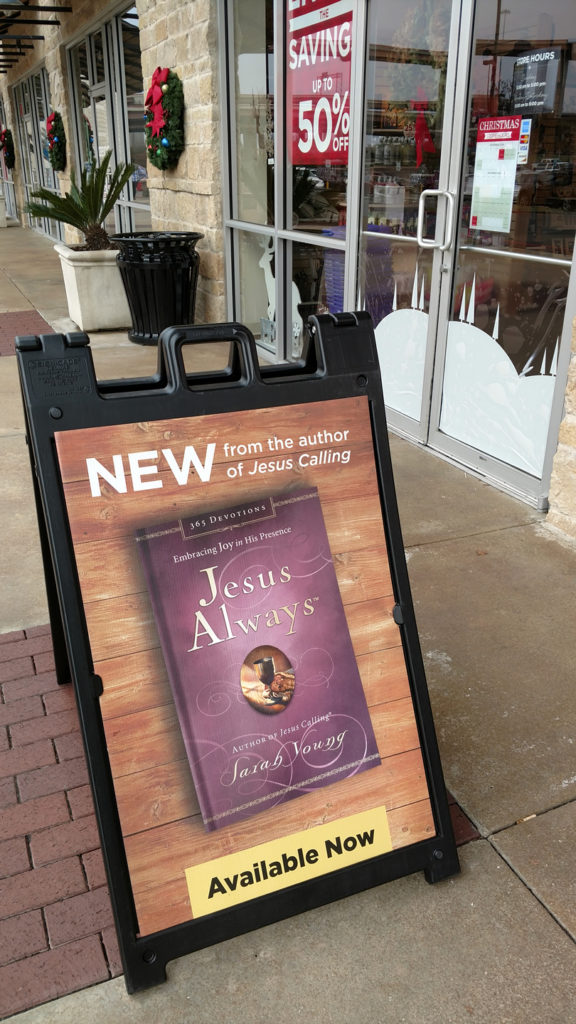Family Christian Stores Close, But What Happens To Authors?
On Feb. 23, Family Christian Stores is closing after declaring bankruptcy for the second time. Evidently, this time it’s for good. Unlike the first go round, which was largely a reorganization, this is a liquidation, with the proceeds for the sale of the property and merchandise to be sent back to the creditors.
What’s tragic here is that another brick and mortar outlet for Christian-based merchandise has left the scene. Yet, I don’t think anyone can look at the circumstances of the demise of FCS and say they are surprised. I’m not.
A little over 18 months ago, I read a blog post from Steve Laube that gave some of the salient details on the brief dive and quick departure from the bankruptcy pool. I’m going to list them here for reference.
- Stores will stay open
- Trade creditors will get 5% of what they are owed plus 100% for all of the sales made within 20 days of the bankruptcy filing.
- Owners of consignment inventory will get paid for a percentage of their inventory, somewhere between 10-35%, depending on circumstances.
- The main secured creditor will get paid 100%.
- Another secured creditor will take a large write-off.
 Somewhere in the minutiae of the details was the fact that my royalty check from Bethany House (for my fantasy novels such as A Cast of Stones, The Hero’s Lot, and A Draw of Kings) would be smaller because of the bankruptcy. I’m not sure how much, but my best estimate in somewhere in the four-figure range. No, my world didn’t end, but I did work hard for that money, and like a lot of people, I felt cheated.
Somewhere in the minutiae of the details was the fact that my royalty check from Bethany House (for my fantasy novels such as A Cast of Stones, The Hero’s Lot, and A Draw of Kings) would be smaller because of the bankruptcy. I’m not sure how much, but my best estimate in somewhere in the four-figure range. No, my world didn’t end, but I did work hard for that money, and like a lot of people, I felt cheated.
Why?
Surely, business is risk. I understand that. I think most people do. Surely, I didn’t expect to be immune to the pitfalls and misfortunes that come with the publishing industry. Oh my, no. You can’t get into a reasonable discussion with anyone in the publishing industry without getting at least a sense that it’s going through some serious growth pains.
Why did I feel taken advantage of?
In the end, I think it had to do with two factors. First, back in 2015, someone had decided that their economic survival depended on my financial sacrifice. Well, no one bothered to ask me for my sacrifice. They just took it. I read lots of comments on the inter-sphere talking about how this would help FCS emerge stronger and leaner and better able to serve their market.
I didn’t believe it for a moment. After delving through the details, I got the impression the reorganization was basically a ham-fisted grab for merchandise to try to artificially inflate the balance sheet. I remember commenting at the time that I’d thought FCS had poisoned the well with the way they’d conducted themselves.
Imagine you’re one of the companies who had to settle for five cents on the dollar for what you’re owed. Would you supply that company with any more of your precious product without full payment up front? I wouldn’t. I may not be the sharpest tool in the shed, but I’m a little sharper than a bowling ball.
And this brings me to the second point of what bothered me so much about the FCS reorganization: It was the fact that all the while, the parties involved kept spouting the usual Christian platitudes, even while they were forcing other companies to pay the price for their mistakes.
What does it mean to be a Christian business?
No, that’s not a trick question. I suppose it’s a sad commentary that we’re at the point where we have to define terms, but I think it will help. I say this because I think a lot of the time, we use that term in different ways. Since I’m a science nerd, I thought a Punnett square would be helpful. If you don’t know what that is, here is the definition, courtesy of www.dictionary.com.
Punnett square – noun: in genetics, a type of grid used to show the gametes of each parent and their possible offspring; a type of grid that can indicate all the possible outcomes of a genetic cross; also called checkerboard.
Merchandise
(Sells Christian merchandise)
Mmerchandise
(Does not sell Christian merchandise)
mB
Behavior
(Acts Christian)BM Bm b
behavior
(Doesn’t act Christian)bM bm
So, ask you can see, there are four distinct possibilities here. I’m probably like a lot of people. When the “Christian” appears in the title or description of the business, I immediately go to the upper left of the matrix and assume that the Merchandise and the Behavior or both will be Christian. If this doesn’t happen, I’m disappointed, often bitterly so.

Not even Jesus Always could save Family Christian Stores, such as this location north of Austin, Texas during the 2016 Christmas retail season. (photo: E. Stephen Burnett)
I’m pretty sure this has to do with expectations. For example, most of the time I encounter a true example of the upper right corner of the matrix, the Bm square, I’m impressed. I recommend that business to other people, usually because it’s such a pleasant surprise. Chick-fil-A comes to mind as an example. I can’t count the number of times I’ve read stories of how store owners have helped people in trouble by bringing them free food from the store. The merchandise isn’t Christian. Far from it. For crying out loud, it’s a chicken.
That brings us to the final two squares. Like most people, I’ll avoid the lower right corner like the plague unless there’s just no other option. But as a point of clarification, usually what I mean by the “bm” label is a business that takes my money while they’re treating me like dirt. Sorry, I won’t be back. Good luck and hope you get a clue.
The real problem is the lower left corner of the matrix, the dreaded “bM.” I’d like to say they don’t exist, but the truth is, they can’t help but exist. Church history is rife with people who saw the power and popularity of the gospel as the way to make a buck. To assume that these people and business don’t exist is worse than naïve, it’s intentional stupidity.
Did FCS fall into this category? I think so. To be clear here, I’m not judging their hearts or motive, but their actions. With the help of the bankruptcy judge, they confiscated what wasn’t theirs and kept it. They refused to pay their debt.
This begs “The Big Question.” How should a business then act?
I would hope it would be a “BM” all the time every time, but that expectation is unreasonable. In the end, a business is like a church. It might be filled with Christian, well-meaning people, but sooner or later they’re going to make mistakes. Forgiveness is really the only path left to us. I could wish that FCS had been “BM” the whole way. I think it would have been a better witness than to forestall the inevitable by eighteen months.
But they didn’t. Now, just as it was then, it’s up to the rest of us. Don’t gloss over the wrong, but offer compassion and forgiveness. That’s not the way most people would act and that’s precisely why we need to do it. As always, the most important gift we have to offer the world is our witness. People are watching. They’re always watching.









































I’ve encountered 2 privately owned Christian Book Stores. One, in my hometown, was the one I wanted to support. I had a couple of book signings there … but learned a hard lesson with the first book I had self-published long before I knew a thing about writing/publishing (yeah, I was taken advantage of) and I left 10 books, signed the form, etc, and waited to see if any of them would sell. They ALL sold. But when I asked about it, the owner said, I don’t remember how many books you left me. Where’s your paperwork? I said, don’t you have a copy? She said, that’s YOUR responsibility to prove it to me. And since I couldn’t lay my hands on the papers, I got nothing and she got $100. Since then I learned she also doesn’t pay her employees. And she calls me now and then to see if I have any new books out that she can stock in her store. Up until this month, I didn’t. Believe me, I won’t ever be taken in by her again. But it makes me so sad. My own hometown!
Then there’s the store several towns over. They are truly gracious and generous owners who treat their authors with respect and dignity. Since that experience, they’ve retired and there are new owners, whom I plan to meet. I’m hoping the new owners will also be gracious and generous.
I guess what it comes down to is you really can’t count on the word “Christian” in a store’s description or title to be any different than the world. 🙁
Gosh, that’s terrible!
Thank you for your explanation. I think it’s a piece to a puzzle. I’m sorry for your and your fellow authors’ loses. By the grace of our Lord Jesus Christ, may we all be strengthened daily to offer compassion and forgiveness as the opportunities arise.
Good article, Patrick. It’s helpful to see how this affected authors. I think your conclusion is powerful!
Becky
I honestly don’t know what to feel about this. On the one hand, I have been turned off of most Christian media, stores, and even colleges. The one time I was in a Family Christian Store, I was appalled at the prices! Children’s stuff marked up horrifically for what it was and the adult things were mostly kitch and chotchkes. They didn’t even have that much in the way of books! I also remember coming across a blatant Redwall knock off, like lifted the whole plot. I recall leaving really upset at what I saw, but I said nothing so as not to offend my grandparents.
But on the other I of course feel badly for those who have been hurt by the store’s closure. The employees, the writers, even the owners. It feels like… I don’t know, like everyone from the regular people on up have been hurt by this. I didn’t like the store, but I also don’t like companies going back on their word. So I feel like if people had fought harder, we wouldn’t be in this mess. (But I feel the same about most Christian branded stuff.)
The Lord tells us that an unjust balance is an abomination (there’s that word again, something so vile He vomits) to Him, but a just and honest measure He delights in (Pr. 11:1). Canvass any online reviews of people who worked for this company and you’ll get quite a picture. Jesus said you can’t serve God and money, you can only love one (Matt. 6:24). My heart goes out to every single person affected by this, and if any abomination has been wrought, rest assured what is sown is reaped. Now is the time to pray and if anyone out there is in a position to give anyone who used to work at FCS a job, ask God what He wants you to do.